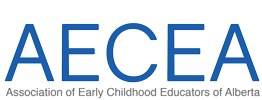Working with individuals who have autism can be a very meaningful experience, but it is not without its challenges. With recent reports indicating that an increasing number of individuals are on the autism spectrum, a greater number of care providers are encountering individuals with autism as part of their work and life. While every person with autism is unique, many face similar challenges. The primary focus of this workshop is to provide practical strategies for working with high-need individuals around self-regulation, learning practices, and challenging behaviours. Participants will review a behavioural framework to provide effective strategies for each of these areas, which they will be able to adapt to their own specific environment and context.
Some of the Topics Included
- Characteristics of Autism Spectrum Disorder
- Different Approaches: Behavioural, Sensorimotor, Developmental, Biomedical
- Keys to Effective Interactions
- Strategies for Challenging Behaviours
- Determining the Function of Behaviour
- Mapping Out a Plan: Structures and Systems
- Understanding Anxiety and Autism
- How to be a Support in Self-Regulation
- Strategies for Hyposensitivity and Hypersensitivity
- Physical Self-Regulation Strategies
- Emotional Awareness and Self-Regulation
- Best Practices and Strategies for Learning
- Choosing Effective Learning Goals
- Special Considerations for Higher-Functioning Individuals
Target Audience
This is an introductory-intermediate level workshop intended for school personnel, social service and health care professionals, counsellors, parents, and anyone seeking a better understanding of autism.
Method of Delivery
Presentation, video, case study exercises, experiential practice, personal reflection, and small group discussions.
Learning Objectives
At the end of this workshop, participants should be able to:
- Have a basic understanding of behavioural principles
- Understand how to identify the function of challenging behaviours
- Identify best approaches for a variety of challenging behaviours
- Describe steps for assessment, emotion identification, and replacement skills
- List cognitive strategies for working with anxiety in individuals with autism
- Create a learning plan with clear goals, appropriate task breakdown structure, and objective criteria
Location:
Online
Date & Time:
September 20 & 21, 2022 8:00 a.m.-3:00 p.m. MST
For more information and to register, go here.
AECEA Professional and Student members get 15% off public workshops through the Crisis and Trauma Resource Institute (CTRI), log in to your account for the discount code!
